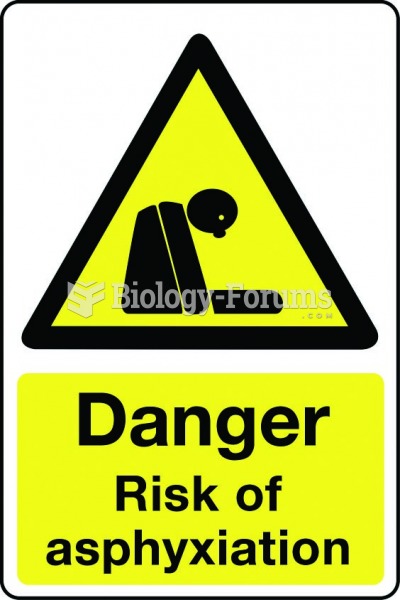|
|
|
There are approximately 3 million unintended pregnancies in the United States each year.
Methicillin-resistant Staphylococcus aureus or MRSA was discovered in 1961 in the United Kingdom. It if often referred to as a superbug. MRSA infections cause more deaths in the United States every year than AIDS.
Once thought to have neurofibromatosis, Joseph Merrick (also known as "the elephant man") is now, in retrospect, thought by clinical experts to have had Proteus syndrome. This endocrine disease causes continued and abnormal growth of the bones, muscles, skin, and so on and can become completely debilitating with severe deformities occurring anywhere on the body.
The oldest recorded age was 122. Madame Jeanne Calment was born in France in 1875 and died in 1997. She was a vegetarian and loved olive oil, port wine, and chocolate.
It is believed that the Incas used anesthesia. Evidence supports the theory that shamans chewed cocoa leaves and drilled holes into the heads of patients (letting evil spirits escape), spitting into the wounds they made. The mixture of cocaine, saliva, and resin numbed the site enough to allow hours of drilling.
 Mutualisms, such as those that occur among plants and pollinators, generally involve large numbers o
Mutualisms, such as those that occur among plants and pollinators, generally involve large numbers o
 Two important changes occur in the upper airway in croup:The epiglottis swells, thereby occluding th
Two important changes occur in the upper airway in croup:The epiglottis swells, thereby occluding th






